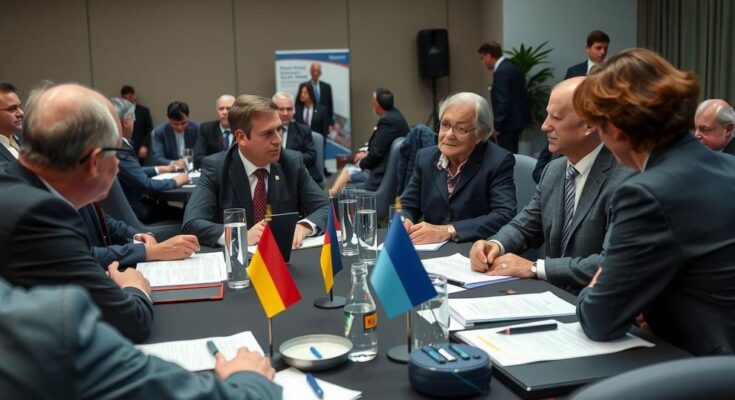Germany’s Federal Electoral Committee has ruled the MLPD unable to participate in the upcoming elections due to the claim of lacking an effective executive committee. This decision has raised concerns about democratic rights and the barriers faced by smaller parties in the electoral process, particularly regarding bureaucratic hurdles and potential bias in the committee’s structure.
On December 10, Germany’s Federal Electoral Committee convened a special meeting regarding the Marxist-Leninist Party of Germany (MLPD), a Maoist political entity, which has been barred from participating in the upcoming federal election scheduled for February 23. The Committee justified its ruling based on a technicality that claims the party lacked a valid executive committee, arguing that the MLPD’s practice of electing leadership every four years violates the Political Parties Act, which mandates elections at least biennially. This decision marks a significant deviation from past practices, as the MLPD has successfully participated in elections since 1987.
The ruling against the MLPD has provoked outrage, as it is perceived as an assault on democratic principles, particularly the right to free elections. The MLPD argues that the Federal Electoral Committee’s decision undermines its organizational integrity by labeling its executive as ineffective, thus straying from established democratic norms and process. Additionally, the bureaucratic hurdles imposed on smaller parties—such as collecting thousands of signatures within short timeframes—render it nearly impossible for them to compete effectively.
Calls for accountability have emerged, highlighting the lack of democratic legitimacy of the Federal Electoral Committee, which predominantly consists of appointees from established parties, thus potentially biasing its decisions against smaller party candidates. The repercussions of denying the MLPD participation could extend to legal ramifications affecting the party’s status and its ability to operate within the political framework of Germany. In totality, this ruling raises significant concerns about the fairness and accessibility of electoral processes in the country.
Germany’s Federal Electoral Committee serves as the governing body responsible for overseeing party participation in elections. Under current laws, smaller parties lacking representation in the Bundestag face steep barriers to entry, such as stringent signature collection requirements. The MLPD’s exclusion from the February election not only emphasizes ongoing tensions within German electoral politics, but also brings scrutiny to the system’s treatment of lesser-known parties. Historical precedents have allowed the MLPD to contest elections without issue until now, prompting questions regarding the motivations and implications of the recent ruling. The early elections follow the dissolution of the “traffic light coalition” and reflect broader political strategies that could favor more conservative elements within the government, raising alarms about the overall health of democratic processes in Germany, particularly for marginalized parties.
In summary, the recent decision by Germany’s Federal Electoral Committee to bar the MLPD from the February parliamentary election has significant implications for the democratic landscape in the country. By utilizing a technicality based on the party’s executive committee structure, the Committee has sparked concerns regarding their motives and the fairness of electoral participation for smaller parties. This situation necessitates a re-examination of the laws governing electoral participation to ensure that all parties have equitable access to the democratic process.
Original Source: www.wsws.org




